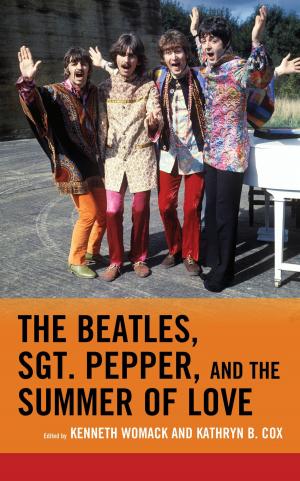The Legacy of the Cold War
Perspectives on Security, Cooperation, and Conflict
Nonfiction, History, Asian, Former Soviet Republics, Social & Cultural Studies, Political Science, Politics, Arms Control, Modern, 20th Century| Author: | Lorenz Lüthi, Malcolm Byrne, Willlem van Eekelen, Lawrence S. Kaplan, William R. Keylor, Vincent Keating, Vojtech Mastny, Daniel Möckli, Nicholas Wheeler, Zhu Liqun, Huang Yuxing, Andreas Wenger, Mark Kramer, Robert J. McMahon | ISBN: | 9780739187906 |
| Publisher: | Lexington Books | Publication: | December 16, 2013 |
| Imprint: | Lexington Books | Language: | English |
| Author: | Lorenz Lüthi, Malcolm Byrne, Willlem van Eekelen, Lawrence S. Kaplan, William R. Keylor, Vincent Keating, Vojtech Mastny, Daniel Möckli, Nicholas Wheeler, Zhu Liqun, Huang Yuxing, Andreas Wenger, Mark Kramer, Robert J. McMahon |
| ISBN: | 9780739187906 |
| Publisher: | Lexington Books |
| Publication: | December 16, 2013 |
| Imprint: | Lexington Books |
| Language: | English |
The unexpected end of the protracted conflict has been a sobering experience for scholars. No theory had anticipated how the Cold War would be terminated, and none should also be relied upon to explicate its legacy. But instead of relying on preconceived formulas to project past developments, taking a historical perspective to explain their causes and consequences allows one to better understand trends and their long-term significance. The present book takes such perspective, focusing on the evolution of security, its substance as well as its perception, the concurrent development of alliances and other cooperative structures for security, and their effectiveness in managing conflicts.
In The Legacy of the Cold War Vojtech Mastny and Zhu Liqun bring together scholars to examine the worldwide effects of the Cold War on international security. Focusing on regions where the Cold War made the most enduring impact―the Euro-Atlantic area and East Asia―historians, political scientists, and international relations scholars explore alliances and other security measures during the Cold War and how they carry over into the twenty-first century.
The unexpected end of the protracted conflict has been a sobering experience for scholars. No theory had anticipated how the Cold War would be terminated, and none should also be relied upon to explicate its legacy. But instead of relying on preconceived formulas to project past developments, taking a historical perspective to explain their causes and consequences allows one to better understand trends and their long-term significance. The present book takes such perspective, focusing on the evolution of security, its substance as well as its perception, the concurrent development of alliances and other cooperative structures for security, and their effectiveness in managing conflicts.
In The Legacy of the Cold War Vojtech Mastny and Zhu Liqun bring together scholars to examine the worldwide effects of the Cold War on international security. Focusing on regions where the Cold War made the most enduring impact―the Euro-Atlantic area and East Asia―historians, political scientists, and international relations scholars explore alliances and other security measures during the Cold War and how they carry over into the twenty-first century.















